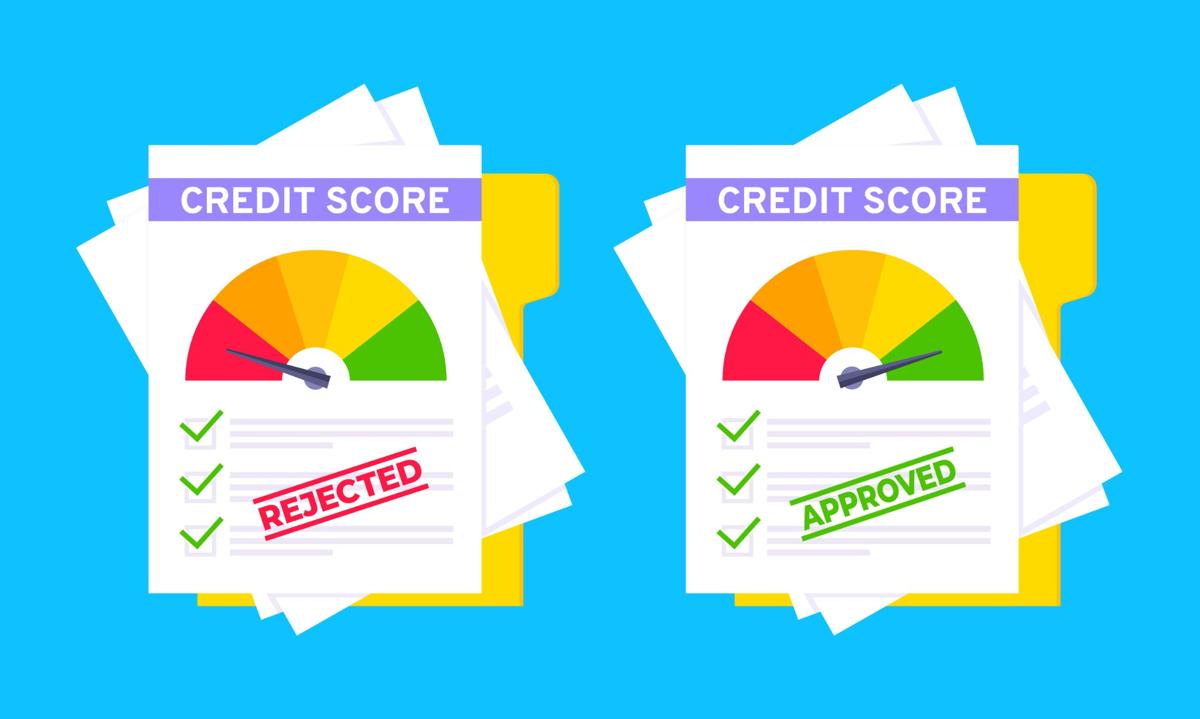Are you worried that having a CCJ means you can’t get a mortgage? Good news is that’s not always the case. While high-street lenders may say no, specialist mortgage lenders offer solutions—even if your CCJ is recent. In this guide, we deliver insights on how to improve your chances and secure the right mortgage.
Can You Get a Mortgage with a CCJ?
Yes, getting a mortgage with a CCJ is possible, but it depends on several factors. While high-street banks and building societies often decline mortgage applicants with a CCJ, specialist lenders take a more flexible approach. You’re more likely to get approved for a mortgage if:
- Your CCJ is over 12 months old – The older the CCJ, the less impact it has on lender decisions.
- The CCJ is satisfied or for a small amount – Lenders prefer CCJs that have been repaid or are under £1,000.
- You have a larger deposit (15-25%) – A bigger deposit reduces lenders’ risk and increases your approval chances.
- Your credit history has improved since the CCJ – No recent missed mortgage payments and responsible credit use will help your application.
Most lenders have strict eligibility criteria, but a specialist CCJ mortgage broker can match you with the right lender, improving your chances of securing a mortgage. Get specialist mortgage advice here >

How County Court Judgements Affect Getting a Mortgage
A County Court Judgment (CCJ) is a legal order issued when someone fails to repay a debt. It is recorded on your credit file and shared with all UK credit reference agencies. This can then affect your ability to secure credit applications, including mortgages.
- If paid within 30 days, the CCJ can be removed from your credit record entirely.
- If unpaid, it remains on your file for six years, influencing lender decisions.
While a CCJ can make mortgage approval more challenging, it doesn’t make it impossible. Specialist mortgage lenders assess applications differently, considering factors such as:
- How recent the CCJ is – Older CCJs have less impact.
- Whether it has been paid (satisfied) – A satisfied CCJ is viewed more favorably.
- Your overall credit history – A CCJ alone may not prevent approval if your finances have improved.
- Deposit size – Some lenders require a larger deposit (15-25%) for applicants with a CCJ.
Many high-street lenders may reject applications outright because a county court judgement lowers your credit rating. However, specialist lenders assess applicants on a case-by-case basis and may still offer mortgage solutions, even if the CCJ is recent.
How Long Does a CCJ Stay on Your Credit Report?
A CCJ remains on your credit file for six years, even if it has been paid in full. However, its impact on your mortgage options reduces over time:
- Less than 12 months old – Very few lenders will approve; a high deposit is usually required.
- 1-3 years old – Some specialist mortgage lenders may consider your application.
- 4-5 years old – More mortgage lenders become available, but higher interest rates may apply.
- 6+ years old – The CCJ is removed from your credit record, improving mortgage options.
Can You Remove a CCJ from Your Credit Report Early?
- Pay within 30 days – The CCJ can be erased from public records.
- Challenge errors – If the CCJ was issued unfairly, you may dispute it.
Once a CCJ expires after six years, it no longer appears on your credit file, making it easier to secure a mortgage with better rates and terms.
How Do Mortgage Lenders View CCJs? (What You Need to Know)
Each mortgage lender has its criteria, and most high-street lenders are cautious about bad credit mortgages. However, specialist mortgage providers focus on mortgages for applicants with CCJs. These lenders assess CCJs based on
- Age – Older CCJs (3+ years) have less impact.
- Status – Satisfied CCJs are viewed more positively.
- CCJ amount – Small CCJs (< £1,000) may be ignored by some lenders.
- Credit history since the CCJ – No further missed payments improves approval chances.
| Lender Type | CCJ Acceptance | Deposit Requirement | Interest Rates |
|---|---|---|---|
| High-Street Lenders | Rarely accept CCJs | 10-15% | Lower |
| Specialist Lenders | More flexible | 15-25% | Higher |
Specialist mortgage Lenders for Bad Credit Mortgages
Many mainstream lenders decline applicants with credit issues, but lenders offering specialist mortgages cater specifically to those with bad credit, including CCJs.


Some well-known specialist mortgage providers that consider applicants with CCJs include:
| Lender | CCJ Acceptance | Deposit Required | Best For |
|---|---|---|---|
| Pepper Money | Recent CCJs accepted | 10%+ | Borrowers with multiple CCJs |
| Bluestone Mortgages | More than one CCJ | 15%+ | Self-employed applicants |
| Vida Homeloans | Unsatisfied CCJs considered | 15-25% | Competitive rates for bad credit |
| Kensington Mortgages | Older CCJs (2+ years) | 15%+ | High LTV mortgages (90%+) |
3 Reasons You’ll Benefit from a Specialist Mortgage Lender
- More flexible lending criteria – They assess cases individually rather than relying solely on credit scores.
- CCJ-friendly policies – Some lenders ignore CCJs over three years old or those under £1,000.
- Higher approval rates – More likely to approve applicants who have improved their financial situation.
Specialist mortgage providers may ask for a higher deposit to offset the risk. While some accept 10%, others prefer 15-25%. The larger your deposit, the better your mortgage options.
Which Lender is Right for You?
- If your CCJ is older than six years and you have a good credit record, you may qualify with a high-street lender.
- If your CCJ is recent or unsatisfied, a specialist mortgage lender is the better option.
A bad credit mortgage broker can help match you with the right lender based on your credit report and financial profile.
5 Ways Mortgage Brokers Can Help You Find a Lender with a CCJ
Finding a lender when you have a CCJ on your credit file can be difficult. High-street banks often have strict criteria, and applying to multiple lenders increases the risk of credit checks, which can lower your credit score. An experienced mortgage broker helps you find the right lender in several ways:
- They know which lenders accept CCJs – Brokers have access to a wide panel of lenders, including lenders offering specialist mortgages who accept CCJ applicants. They match you with lenders most likely to approve your mortgage.
- They find the most suitable lender for your situation – Not all lenders assess CCJs the same way. A broker helps you find a lender that considers factors like the age of your CCJ, deposit size, and overall credit rating.
- They prevent unnecessary rejections – Applying to the wrong lenders can result in multiple credit rejections, damaging your credit score. A broker ensures you apply only to lenders who are likely to accept you.
- They negotiate better mortgage terms – Some specialist lenders only work through brokers, which means they can access exclusive mortgage rates, lower deposits, or better repayment terms than if you applied directly.
- They speed up the process – Brokers handle the entire mortgage application process, liaising with lenders on your behalf to secure approval faster and reduce delays.
Working with a specialist mortgage broker increases your chances of finding the right lender and securing a mortgage—even with a CCJ on your credit file.
7 Steps to Improve Your Chances of Mortgage Approval with a CCJ
While securing a mortgage with a CCJ is possible, taking proactive steps can increase your chances of approval and access to better mortgage rates and deals. Lenders assess more than just your credit file—they also look at your financial stability, deposit size, and recent credit history.
By improving these factors, you can strengthen your mortgage application and reduce the impact of your CCJ.
1. Check and Improve Your Credit Report with Credit Reference Agencies
Before applying for a mortgage, check your credit history with the three main credit reference agencies in the UK:
- Experian
- Equifax
- TransUnion
Why? Lenders use your credit file to assess your financial health. Reviewing it helps identify errors or outdated information affecting your credit score.
How to check for free:
- Use services like ClearScore (Equifax) or Credit Karma (TransUnion) for free ongoing access.
- If you find incorrect information, dispute it with the credit agency before applying for a mortgage.
For a comprehensive view of your credit history, Checkmyfile provides access to all three major UK reference agencies—Experian, Equifax, and TransUnion—in one report, making it easier to spot inconsistencies in your credit report details.
2. Ensure Your CCJ is Correctly Recorded
Errors on your credit report can unfairly lower your chances of getting a mortgage. Key things to check:
- Is the CCJ accurate? Ensure it belongs to you and wasn’t a mistake.
- Is the amount correct? Incorrect figures could affect affordability calculations.
- Has it been marked as satisfied? If you’ve paid off the CCJ, ensure it shows as satisfied on your credit record.
💡 Fixing errors:
- Dispute incorrect CCJ records with the credit reference agency.
- Request a Certificate of Satisfaction from the court if the CCJ is paid.
- If your CCJ is over six years old, ensure it has been removed from your credit file.
3. Get a CCJ Removed from Your Credit File Early
A CCJ remains on your credit report for six years, but in some cases, you can remove it earlier, here are 3 ways you can do so:
- Pay within 30 days – If paid in full within a month, you can apply for it to be removed entirely.
- Apply to have it set aside – If the CCJ was issued unfairly (e.g., you weren’t notified), you may be able to overturn it.
- Fix reporting errors – If your CCJ is settled but still appears as unpaid, contact the credit reference agencies to update it.
If you can’t remove it early, focus on improving your overall credit profile to offset its impact.
4. Save for a Bigger Deposit
A larger deposit reduces lender risk and increases your chances of securing a mortgage with a CCJ.
💰 How much deposit do you need?
- 10% deposit – Possible, but fewer lenders will accept this.
- 15-20% deposit – More mortgage lender options, better mortgage rates.
- 25%+ deposit – Greatly improves approval chances, especially for multiple CCJs.
🔹 3 ways to save for a bigger deposit?
- Cut unnecessary spending and increase savings.
- Look into government home-buying schemes (e.g., Lifetime ISA).
- Consider a gifted deposit from family if available.
A higher deposit and evidence to the lender that your bank accounts are growing also reduce interest rates, making your mortgage more affordable in the long run.
5. Time Your Application for the Best Chance of Approval
The timing of your mortgage application can impact approval chances. If your CCJ is close to expiring, waiting may give you access to better mortgage rates.
| CCJ Age | Impact on Mortgage Approval |
|---|---|
| Less than 12 months | Very few lenders will accept, and a high deposit is required. |
| 1-3 years old | Some specialist mortgage lenders may approve, especially if your deposit is larger. |
| 4-5 years old | More lenders available, but higher interest rates may apply. |
| 6+ years old | The CCJ is removed from your credit file, improving mortgage options. |
If your CCJ is nearing six years, waiting until it disappears from your record may give you access to better rates.
6. Avoid Common Mistakes That Can Harm Your Mortgage Chances
Avoid these 4 common mistakes when a getting a mortgage with a CCJ:
- ❌ Applying to multiple lenders at once – Too many hard credit checks lower your score.
- ❌ Ignoring your credit report – Errors can lead to unnecessary rejections.
- ❌ Applying for new credit before your mortgage – Taking out loans or credit cards can signal financial instability.
- ❌ Not saving enough deposit – A larger deposit increases lender confidence and expands your mortgage options.
Being strategic and prepared reduces rejection risks and improves your mortgage eligibility.
7. Work With a Specialist Mortgage Broker
If you have a CCJ on your credit file, working with a specialist broker can significantly improve your chances of getting approved. Unlike high-street banks, specialist brokers have insight into lenders that accept CCJs and can match you with the right mortgage provider.
Here are five ways a specialist broker can help:
- Access to lenders that accept CCJs – Brokers have relationships with specialist lenders who consider CCJ applicants, even if mainstream banks won’t.
- Avoid unnecessary credit checks – Applying to multiple lenders can harm your credit score. A broker ensures you only apply where you’re likely to be accepted.
- Help structuring your application – Lenders assess income, deposit, and credit history differently. A broker helps present your financial profile in the best possible way.
- Negotiate better mortgage terms – Some specialist lenders only work through brokers, giving you access to exclusive rates and lower deposit options.
- Speed up the mortgage process – A broker handles paperwork, liaises with lenders, and ensures a smoother, quicker approval process.
A bad credit mortgage broker increases your chances of securing a competitive mortgage deal, even if you have a CCJ. Get expert advice today and find the right lender for your situation.
Where to Get Professional CCJ Mortgage Advice
Finding the right mortgage lender when you have a CCJ on your credit file can be challenging, but the right advice can make all the difference. Whether you need help securing a mortgage, rebuilding your credit, or improving your financial situation, there are experts who can assist you.
Where to Find Expert Help:
- Specialist Mortgage Brokers – A broker who specialises in bad credit mortgages can match you with lenders that accept CCJs. They also help structure your application to improve your chances of approval and access exclusive mortgage deals.
- Financial Advisers – If your CCJ is recent or your finances need improvement, a financial adviser can help you rebuild your credit profile and create a plan to strengthen your mortgage eligibility before applying.
- Government & Debt Charities – Free organisations like StepChange, National Debtline, and Citizens Advice provide guidance on managing debts, budgeting, and improving your credit record to increase your mortgage chances.
A bad credit mortgage broker is often the best route for securing a mortgage with a CCJ. They can identify suitable lenders, prevent unnecessary rejections, and improve your overall chances of approval. If you’re unsure where to start, getting expert advice can save you time, money, and stress.
Get in touch with our team today for expert advice on finding the right mortgage lender for your situation.
Frequently Asked Questions
Will a CCJ stop you from getting a mortgage?
No, but it limits your options. High-street lenders may decline you, but specialist mortgage lenders consider CCJs, especially if they’re over 12 months old, satisfied, or for a small amount.
What mortgage lenders accept CCJs?
Specialist mortgage providers like Pepper Money, Bluestone Mortgages, Vida Homeloans, and Kensington Mortgages accept CCJs. High-street banks are stricter, usually rejecting recent or unsatisfied CCJs. A mortgage broker can find suitable lenders.
Can I get a mortgage with a 4-year-old CCJ?
Yes, many lenders consider CCJs over three years old, especially if satisfied. You’ll likely need a larger deposit (15-25%), a stable income, and a strong credit history since the CCJ.
How long does a CCJ stop you from getting a mortgage?
A CCJ stays on your credit file for six years, but its impact reduces over time. After 12 months, some specialist mortgage lenders consider you, and after six years, it’s removed completely.
Will I pass a credit check with a CCJ?
It depends on the lender. High-street banks may reject recent CCJs, while specialist mortgage lenders assess affordability and deposit size alongside credit history, making approval more likely despite a CCJ.
Do you need to work with a mortgage broker to get a mortgage with a CCJ?
No, you don’t need to work with a broker, but it will significantly improve your chances. Brokers have access to specialist mortgage providers, can match you to suitable deals, and help avoid unnecessary rejections.
Do I need to pay a mortgage broker when getting a mortgage with a CCJ?
Most brokers that offer specialist bad credit advice charge a fee. This is because CCJ cases require more time, expertise, and lender negotiations to secure the best possible mortgage deal.
Final Thoughts
Getting a mortgage with a CCJ is more challenging but not impossible. With the right tools, preparation, and expert guidance, you can find a suitable lender and move forward with your homeownership plans.
✅ Check your credit report and correct any errors.
✅ Save for a bigger deposit to improve mortgage options.
✅ Work with a specialist mortgage broker for tailored advice.
A CCJ doesn’t have to stop you from getting a mortgage. With specialist lenders, a bigger deposit, and expert guidance, you can still secure the right mortgage deal. Ready to take the next step? Speak to a mortgage specialist today and explore your options.





